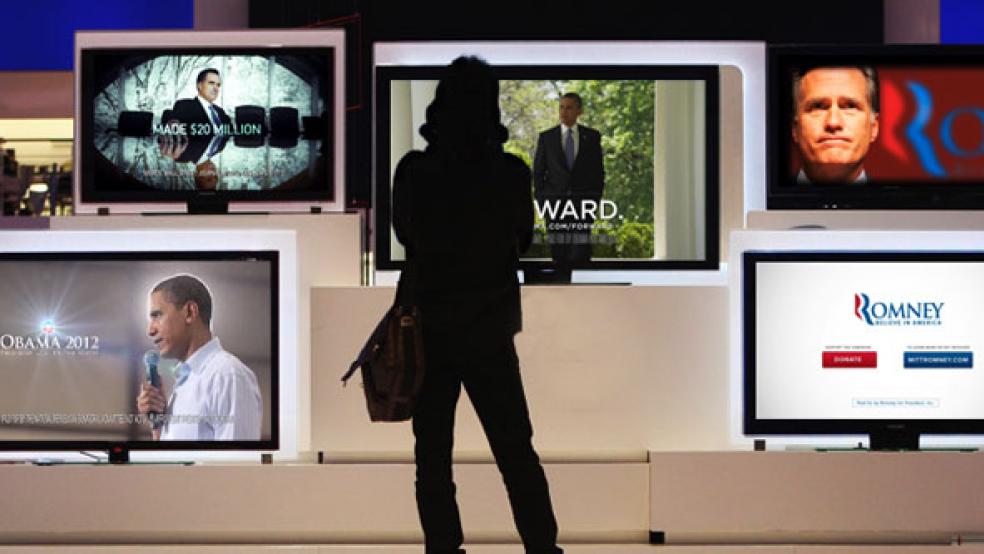Negative political ads may pack a punch – but only with voters who trust the politicians delivering them, a new study suggests.
But contrary to conventional wisdom, those ads don’t always work as well as some believe, partly because the audience with which they seem to work best – people who already think government works – has been shrinking.

For a study presented in September to the American Political Science Association, University of Florida political science professor Stephen Craig and Paulina S. Rippere, a UF doctoral student and faculty member at Flagler College, examined the effect of negative ads on voters with varying levels of trust and confidence in their political leaders.
The findings suggest that political trust and political knowledge can play a role in shaping citizens’ reactions to negative campaign appeals.
RELATED: Why Presidential Ads Will Flunk the FTC Sniff Test
In a controlled experiment, 278 undergraduates were presented with campaign ads attacking two fictional incumbents who were said to be seeking re-election to a third term in the US House. The candidates’ party affiliations were rotated – sometimes the incumbent was a Democrat, other times a Republican – during the course of the experiment, and subjects read one negative “direct mail” attack in each of the two races.
These attacks dealt more with the target’s personal behavior than with his policy positions. In one contest, the incumbent was criticized for “helping himself to other people’s money” such as voting himself a pay raise, and supporting no-bid contracts to family and friends while serving earlier in the state Legislature.
In the other, the incumbent was said to be “out of touch with the people who elected him” such as buying a plush townhouse in Georgetown while only visiting the district on weekends, and accepting campaign donations from Wall Street fat cats and special interests.
Results showed that the first attack was more effective than the second, and neither was equally effective with all groups of voters. Indeed, the greatest impact in terms of voters penalizing the incumbent for his alleged shortcomings was evident among those individuals who were knowledgeable about politics and who expressed a relatively high degree of trust in their political leaders, a segment of the electorate that is smaller than it used to be.
Apart from the fact that many people don’t like them and don’t always take them seriously, one reason for the ineffectiveness of some negative ads is that campaign attacks seldom go unanswered. A paper presented by Craig, Rippere, and Marissa Grayson of Samford University to the Midwest Political Science Association in April used data from the same controlled experiment to determine what kinds of responses are most effective in mitigating the damage done by an successful attack.
RELATED: New Trend in Campaign Cash: Text Messaging
Few academic studies have examined negative campaigning from the point of view of the target, rather than the attacker. In this case, Craig and his co-authors found that the approach preferred by political consultants – and counterattack – could win back most, if not all, of the support lost following the initial attack if done well, but the same was true for other approaches.
In particular, results from the experiment indicated that presenting a “counter image” that explains the candidate’s character and forcefully restates his or her biography in a positive light can be equally (if not more) effective in some circumstances.
“You can be tough and still remain positive,” Craig says, though this type of ad probably requires a higher degree of creativity, and has less margin for error, than some of the others.
In years past, many candidates and consultants believed that the best way to counter an attack was simply to ignore it. The Craig study suggests that this is no longer true if it ever was, and that failure to respond in some manner is a very risky strategy for any candidate.
Despite the media’s reporting that Americans are disturbed by negative campaigns, Craig says that’s not necessarily the case. People may not like it when confronted with a constant barrage of negativity, but they recognize that voters need to know both the good and the bad about candidates to make a truly informed choice.
However, “It’s possible to go over the edge,” Craig says. “There are limits to the kinds of attacks that voters are willing to accept.” When a candidate exceeds those (admittedly imprecise) limits, a backlash is the likely outcome.
This article originally appeared in Futurity.org.




